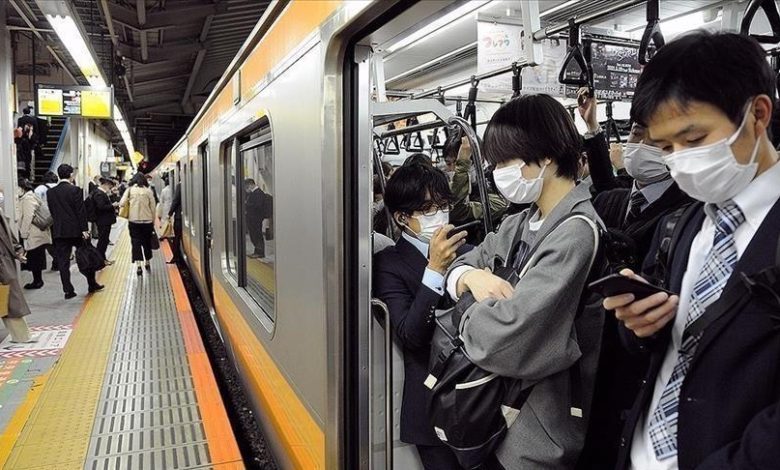Japan’s COVID-19 Infections Hit New Record As 7th Wave Continues Nationwide Sweep
According to local government and the health ministry's figures, more than half of Japan's 47 prefectures reported record numbers of new daily COVID-19 infections on Wednesday, as the country's health system is feeling the strain.

Japan’s new daily COVID-19 cases hit a new record Wednesday, topping the 209,000-mark for the first time as the highly transmissible BA.5 Omicron subvariant continues to run rampant.
The latest nationwide tally of new daily infections compares to the previous record of around 201,000 COVID-19 cases reached last week as the government grapples to deal with the country’s seventh wave of infections.
According to local government and the health ministry’s figures, more than half of Japan’s 47 prefectures reported record numbers of new daily COVID-19 infections on Wednesday, as the country’s health system is feeling the strain.
ALSO READ: Japan Reports 126,575 New Daily COVID-19 Infections Amid 7th Wave
The rapid surge in cases is crippling emergency transport services in the capital, Japan’s public broadcaster NHK said, as Tokyo on Wednesday logged 29,036 new daily cases, which marks an almost 40 percent increase from a week earlier.
Officials said emergency crews are struggling to find free hospital beds and in the past week, it took more than five hours to find beds for over 80 patients. This comes as they try to respond to an increasing number of heatstroke patients, said NHK.
“New infections have been continuously increasing at a rapid pace to its highest ever level across Japan,” Health, Labor and Welfare Minister Shigeyuki Goto told a meeting of the ministry’s advisory panel of experts.
ALSO READ: China Urges Japan To Stop Hyping Up Security Threats To Justify Its Military Build-Up
The government however has maintained its stance that another round of emergency restrictions are not needed.
Prime Minister Fumio Kishida said that the government’s resources are focused on bolstering the medical system and expanding the eligibility of fourth vaccines, while keeping social and economic activities running.
In the western prefecture of Osaka, however, its alert was raised to the highest of three for the first time in about three months and elderly people were urged to refrain from making nonessential trips outdoors.
Elderly people are still more at risk of developing severe symptoms if they contract the virus.






